Workers’ compensation is a federally mandated, state-regulated insurance program that safeguards employees against financial hardship following work related injury or illness. The concept, however, can seem overwhelming for those unfamiliar with the process, hence the importance of understanding what to avoid when availing of workers’ comp benefits. We’re here to illuminate those pitfalls and give our best tips for making a successful claim.
Understanding Workers’ Comp
Workers’ compensation exists as a safeguard for both the employee and employer. For the injured employee, it provides a financial lifeline, covering medical bills and wage loss during the recovery period. It also protects the employer from potential lawsuits by limiting their liability for a work injury or illness. So workers’ compensation is fundamental in maintaining employment ecosystem stability.
Eligibility for Workers’ Compensation
Eligibility for workers’ compensation is generally based on these criteria: the person must be an employee of a company that carries workers’ comp insurance, and the injury or illness must be work-related. However, these can slightly vary from state to state and industry to industry. For instance, some states have provisions that exempt small businesses with fewer employees from acquiring such insurance. Understanding your state’s laws and how they apply to your industry is critical when filing a workers comp claim.
What Not to Do While on Workers’ Comp
Returning to Work Too Soon
One common mistake people on workers’ comp commit is returning to work too soon. Prioritizing short-term economic gain over long-term health can have serious consequences, both physically and on your claim. Of course, you risk prolonging your recovery or worsening your condition. On your claim, a premature return may signal to the insurance company that your injury isn’t severe. This will affect your compensation.
Neglecting Medical Advice or Skipping Appointments
Not adhering to the prescribed treatment is another red flag for insurance companies. Follow medical advice and attend all your appointments. You want to underscore the seriousness of your condition and your commitment to recovery. If you miss appointments or deviate from medical care, you send the message that you’re not as injured as you claim, lowering your likelihood of receiving workers comp benefits.
Engaging in Disallowed Activities
Many injured workers are surprised to learn that insurance companies often conduct surveillance to verify claims. Engaging in activities that contradict your reported limitations, like doing heavy yard work with a reported back injury, can seriously jeopardize your claim. In some cases, you may even be accused of fraud.
Not Reporting Additional Income
While on workers’ comp, any income must be reported, even if it’s from a secondary or unrelated job. Unreported income may be construed as attempted fraud. This will land you with termination of benefits, fines, or even criminal charges.
Misinterpreting the Claim Process
Misconceptions about workers’ comp can cost you a successful claim. Some assume that it pays full wages or is automatically granted after any workplace injury. Knowing what to expect from the process, how long it might take, and what benefits are typically provided will empower you throughout the process.
The Right Way to Handle Workers’ Comp Claims
Cooperating with Your Employer
It will benefit you to maintain good communication with your employer while applying for workers’ comp. Employers play a significant role in filing the claim and can also help navigate insurance, provide documentation, and support your claim.
To keep your employer informed during the workers’ comp process, provide regular updates on your condition, medical treatment progress, and any changes in your ability to work. Communicate openly and honestly. This transparency will help maintain a good working relationship and keep your employer aware of your situation. The more they know, the more they can help you!
Keeping Accurate Records
Keeping clear, detailed records of your injury, medical appointments, and any interactions related to your claim can significantly aid your case. Having this documentation can help refute any inaccuracies or disputes about your injury or treatment, providing a solid paper trail that supports your claim.
Hiring a Workers’ Comp Attorney
In complex cases, it might be necessary to consider legal representation. Workers’ comp attorneys understand the intricacies of the law and can advocate on your behalf. With their help, you’re more likely to be guaranteed a fair settlement.
The cost of hiring a workers compensation attorney varies and depends on several factors, such as the complexity of your case and the attorney’s fee structure. Some attorneys work on a contingency basis, meaning they only get paid if you win your case and receive compensation. Others may charge an hourly rate or a flat fee. It’s important to discuss fees and payment arrangements with potential attorneys during your initial consultations to have a clear understanding of the costs involved.
Be sure to weigh the cost with your pros and cons and whether added help is worth it in your case. An experienced workers compensation attorney can greatly increase your chances of achieving a favorable outcome. They have expertise in navigating the complexities of the law, advocating for your rights, and ensuring you receive a fair settlement. Ultimately, the decision to hire legal help depends on the specific circumstances of your case and your comfort level with navigating the process on your own.
Final Thoughts
Avoiding the common pitfalls while on workers’ comp primarily involves understanding the system, sticking to the rules, and making informed decisions that champion your health and financial stability. As you navigate this process, keep in mind the significance of honest communication, diligent record-keeping, and collaborating with professionals. Stick with those who can provide you with guidance to claim what you’re rightly entitled to. Always remember: the primary purpose of workers’ comp is to protect you. Learn more about receiving the benefits you need and deserve at Benefits.com.


